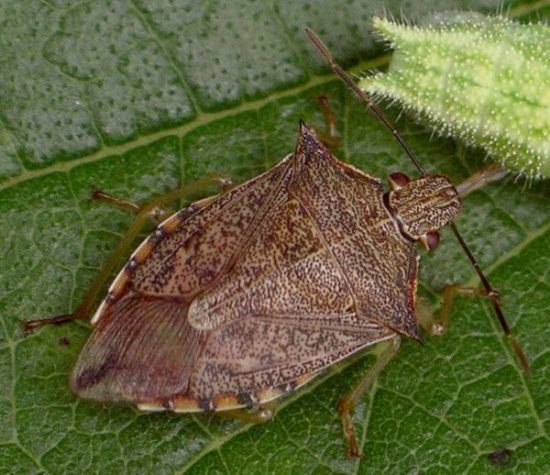Soldier Bug Could Help Combat Antibiotic Resistance
Thanatin is a peptide molecule produced by the spined soldier bug Podisus maculiventris to control the types of bacteria that live in its gut. A research group from the University of Zurich found that thanatin kills the bacteria Escherichia coli by blocking vital proteins in the bacterial cell wall.
E. coli is amongst the bacteria considered critically important targets for new drugs due to their increasing resistance to current antibiotics. Thanatin could, therefore, give us more options for treating E. coli infections.
The study, published in Science Advances, used a combination of techniques including microscopy and nuclear magnetic resonance imaging to visualize exactly how the insect molecule thanatin kills bacteria. It found that thanatin kills the gram-negative bacteria E. coli by disrupting proteins vital for forming its outer membrane, which is necessary for the bacteria to survive.
Thanatin is part of a new class of antibiotics that interfere with the outer membrane of gram-negative bacteria. New classes of antibiotics are needed for gram-negative bacteria because fewer antibiotics affect them. In fact, no new class of antibiotics has been approved for gram-negative bacteria since 1968.
Source and further reading: Labiotech
Smart Innovations
